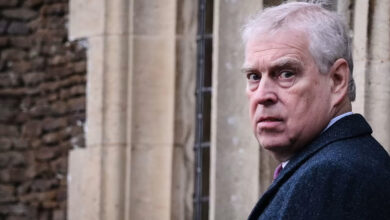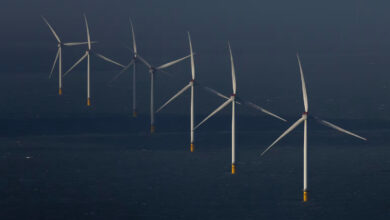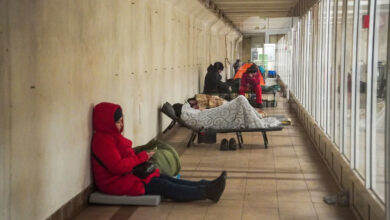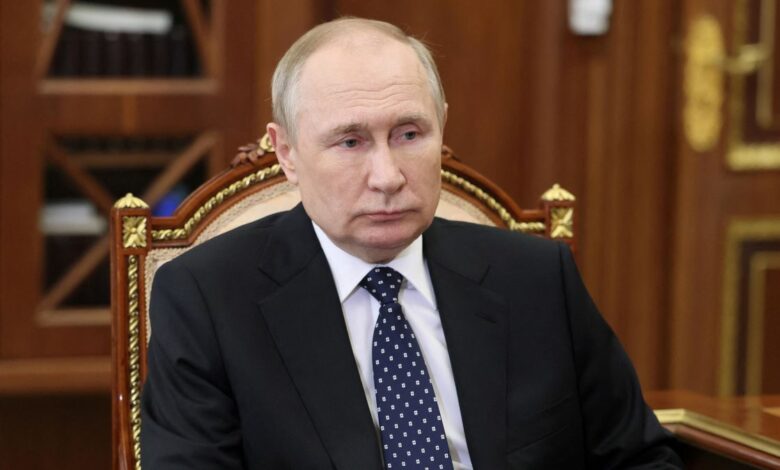
It was New Year’s Eve, one of the most cherished holidays in Russia. The recruits in President Vladimir Putin’s war against Ukraine – hundreds of them mobilized just months ago – were billeted in makeshift barracks, a vocational school in the occupied city of Makiivka, in the Donetsk region. Next door was a large ammunition depot.
The soldiers missed their wives, their families, so they turned on their cellphones and called home. Suddenly, HIMARS rockets, satellite-guided precision weapons that the United States has supplied to Ukraine, hit the school, almost completely destroying it, and igniting the cache of ammunition.
That, at least officially, is how the Russian military is explaining the deadliest known attack on Russian forces in Ukraine since the war began in February 2022. The Defense Ministry blamed the troops themselves, claiming the “main cause” of the attack was the use of cellphones “contrary to the ban.” Russian troops are banned from using personal cell phones in the field, since their signals have been geolocated to hone in on and kill other Russian forces.
But that explanation, and details of the attack that have surfaced, have ignited an extraordinarily public national blame game among Russians.
It started with the death toll. The Russian Defense Ministry initially said 63 soldiers were killed, then increased that number to 89. Ukraine claimed it was approximately 400. But even Russian pro-war bloggers, an increasingly influential element in how Russian civilians get their information about what really is happening in Ukraine, dismissed the official count, estimating that hundreds of troops had died. The true number is not yet known.
One of those bloggers, Semyon Pegov, who uses the online handle “War Gonzo” and was recently awarded a medal by Vladimir Putin, also rejected the military’s claim about cell phones, calling it a “blatant attempt to smear blame.”
“Grey Zone,” another blogger, called the cell phone explanation a “99% lie,” an attempt to evade responsibility. He said it was more likely an intelligence failure.
Russian lawmakers chimed in, demanding an investigation into just who had ordered so many troops to be temporarily quartered in one, unprotected building. Sergey Mironov, a prominent politician and party leader, said there should be “personal criminal liability” for any officers or other military personnel who made that decision. And, implying the military had a lax approach to the war, he warned, “It’s time to realize it won’t be the same as it used to be.”
“This is a battle for the future of Russia,” Mironov said. “We must win it!”
Mironov’s comments touched a nerve. Hardliners like him think Putin’s September “partial mobilization” of reservists, calling up 300,000 men, failed to go far enough. They want a full mobilization that would put the entire country on a war footing. And they want revenge on Ukraine.
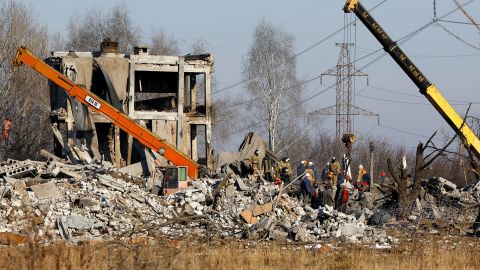
No one so far, however – at least publicly – is blaming Vladimir Putin for the deaths. Margarita Simonyan, editor-in-chief of state-run international network RT and a regular on domestic Russian TV talk shows, said she hoped “the responsible officials will be held accountable” and their names released. But she also hinted the attack could fuel public discontent: “It is high time to understand that impunity does not lead to social harmony. Impunity leads to more crimes and, as a consequence, public dissent.”
Many of the soldiers who perished at Makiivka came from Samara, a city on the Volga River in southwestern Russia, and the families of those killed are mourning their loved ones, bringing red carnations to a rare public memorial service, as priests led people in prayer and a choir sang the liturgy for the young men who had recently been sent to the front.
The Defence Ministry’s admission that significant number of mobilized troops had died in the attack, as well as the open debate among military bloggers, are signs the Kremlin is taking the attack in Makiivka very seriously. After all, the Putin government has the means to shut down reporting on events it does not want the public to know.
Even in this “open” discussion, several commentators have raised the possibility that “informants” may have tipped off the enemy, a go-to conspiracy theory that Russia’s state-run propaganda outlets often promote. Then there is the usual complaint after almost any tragedy in Russia, blaming it on “khalatnost:” negligence.
But the finger of blame, so far, is pointed only at military leaders, no higher. President Putin has made no public comment about the Makiivka attack, a strong indication that he intends to remain as far away as possible from an obvious debacle.

